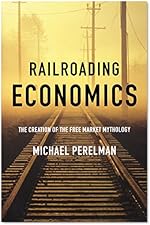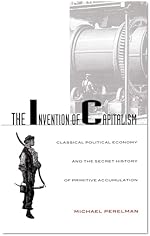Archive for August, 2013|Monthly archive page
Standing on Principle
I am continually amazed by the rhetorical use of principle and probability. States’ rights are a perfect example. To begin with, this concept first evolved as a tactic to protect the rights of slave owners, hardly a noble objective. Since then, it has become almost synonymous with freedom. States should have the right to determine who can and cannot get married. The federal government has no business sticking its nose into such matters. On the other hand, states’ right to legislate on marijuana use is routinely overruled. Similarly, states’ right to control business abuses, such as the spreading of pollution, are routinely overruled by Congress, including strong upholders of states’ rights.
The probability of somebody being injured by a consumer product or an industrial process, such as fracking, are typically dismissed out of hand. On the other hand, protection against terrorism is treated differently. Richard Cheney offers an excellent example of that approach: “If there’s a one percent chance that Pakistani scientists are helping al Qaeda build or develop a nuclear weapon, we have to treat it as if it is a certainty in terms of our response,” Cheney said.” Of course, the kind of actions that Cheney proposed greatly increase the probability of terrorism, which might be desirable in the sense that it offers a welcome pretext to build up the bureaucratic powers justified by such threats.
Appeals to probability are especially interesting because of the ease with which measures of likelihood can be easily manipulated. Here is one of my favorite examples concerns Richard Thaler’s measure of the value of a statistical life, a measure that Thaler soon realized was a wildly underestimated. This underestimation, meant that the cost-benefit analysis of workers’ protection was far more likely to prove unfavorable. Here is a snippet from my Invisible Handcuffs book to show how creatively such analysis could be applied:
“John D. Graham, a fervent opponent of regulation, who became President George W. Bush’s head of the Office of Management and Budget’s Office of Information and Regulatory Affairs, even went so far as to claim that spending money on regulations instead of vaccinating children is tantamount to “statistical murder.” Ironically, I know of no case when the anti-regulators came out in support of any program to actually vaccinate children, perhaps preferring to be able to recycle vaccination as a straw man to wield against all regulation.”
How Greedy Workers’ Pensions Destroy the Economy, Or Not.
Let’s begin with one of these greedy workers. Or maybe he was one of the people who fret about the workers’ pensions?
Maremont, Mark. 2013. “For McKesson’s CEO, A Pension of $159 Million.” Wall Street Journal (25 June): p. B 1.
http://online.wsj.com/article/SB10001424127887323998604578565491579124154.html
“Executive pension plans sometimes grow to a hefty size, amounting to tens of millions of dollars, as extra retirement cushions for long-serving CEOs.”
“Then there’s the record $159 million pension benefit of John Hammergren, the current chairman and CEO of drug distributor McKesson Corp. MCK –0.93% That’s how much he would have received in a lump-sum payment had he voluntarily departed on March 31, McKesson disclosed in its annual proxy filing on Friday.”
“Compensation consultants say it’s by far the largest pension on file for a current executive of a public company, and almost certainly the largest ever in corporate America. It’s also more than double the value of the 54-year-old Mr. Hammergren’s pension six years ago.
“Mr. Hammergren has been at McKesson for 17 years, 12 of them as sole CEO, so he is significantly younger and has a shorter tenure than most other executives who have accumulated large pensions.”
“A giant pension plan was at the heart of a controversy a decade ago over the pay package of Richard Grasso, former chairman of the New York Stock Exchange. An outside investigation found that Mr. Grasso had amassed pension benefits with a lump-sum value of $126 million.”
My mistake. He was probably one of those who groused about workers’ pensions
Or How About the Big Money People who Handle their Pensions?
Braun, Martin Z. and Chris Christoff. 2013. “Detroit’s Pension Funds Dogged by Bad Deals.” Bloomberg Businessweek (28 July): pp. 42-44.
http://www.businessweek.com/articles/2013-07-25/detroits-pension-funds-dogged-by-bad-deals
They detail how the Detroit pension plans have lost more than $10 million on each of several deals with shady characters.
California also got snookered by similar crooks.
Apologies regarding Muscular Christianity, Eugenics, War, Football, and Imperialism
I do now know why my attachment did not work with the blog.
I have posted a link here:
http://www.csuchico.edu/~mperelman/foot.pdf
Muscular Christianity, Eugenics, War, Football, and Imperialism
In the late nineteenth century, a fear about the softness of American society raised doubts about the capacity of the United States to carry out its imperial destiny. This problem was associated with the final settlement of the frontier. As important as the development of open space was to the expansion of the territory of the United States, the completion of the continental expansion brought an attendant fear that traditional masculinity was on the wane and would bring about a withering of the individual and the national body. This fear spread to the church as well, where the result was thought to be a moral softening (Miller 2011, p. 38). To make matters worse, waves of immigrants from Southern and Eastern Europe were flooding American cities with foreign cultures. This concern became so pressing that talk of “race suicide” became common.
Here is the complete section:
 Comments (2)
Comments (2)
 25 – The Confiscation of American Prosperity: From Right-Wing Extremism and Economic Ideology to the Next Great Depression
25 – The Confiscation of American Prosperity: From Right-Wing Extremism and Economic Ideology to the Next Great Depression 30 – Manufacturing Discontent: The Trap of Individualism in Corporate Society
30 – Manufacturing Discontent: The Trap of Individualism in Corporate Society Class Warfare in the Information Age
Class Warfare in the Information Age Railroading Economics: The Creation of the Free Market Mythology
Railroading Economics: The Creation of the Free Market Mythology Steal This Idea: Intellectual Property Rights and the Corporate Confiscation of Creativity
Steal This Idea: Intellectual Property Rights and the Corporate Confiscation of Creativity The Invention of Capitalism: Classical Political Economy and the Secret History of Primitive Accumulation
The Invention of Capitalism: Classical Political Economy and the Secret History of Primitive Accumulation The Perverse Economy: The Impact of Markets on People and the Environment
The Perverse Economy: The Impact of Markets on People and the Environment